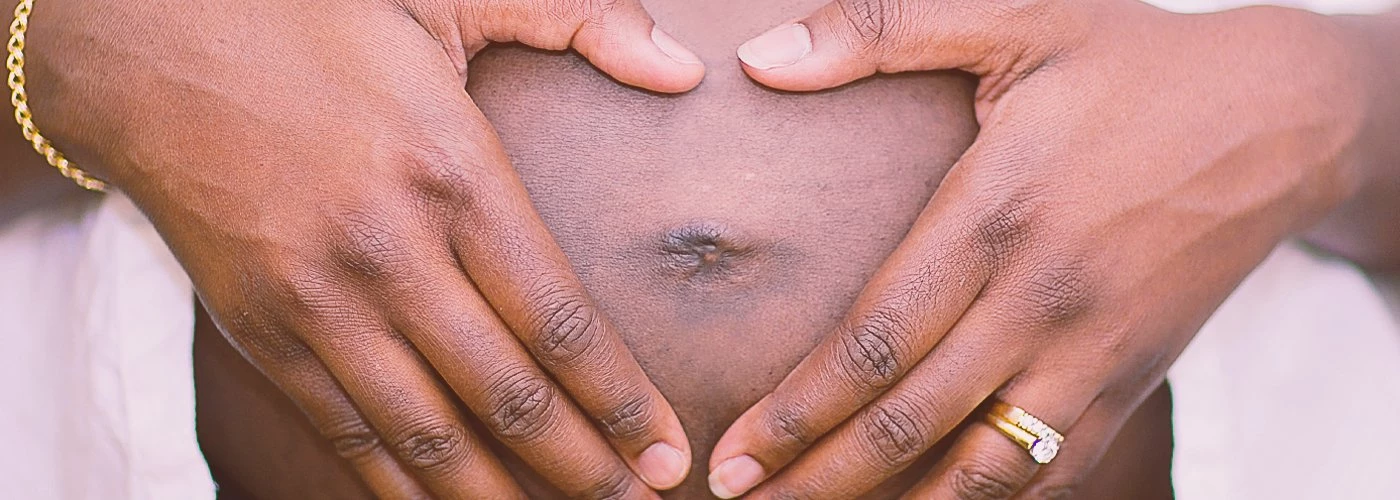The issue of pregnancy after breast cancer is an important one for younger patients who are often diagnosed before they’ve had a chance to complete their families. A young survivor may wonder if they can still get pregnant after treatment. Will they have a healthy pregnancy? And, most pressing for many young survivors, will pregnancy increase their chances of recurrence?
"Our ambition in cancer care in the 21st century should be more than mere survival, it should be return to a normal life. This includes the possibility to have a family."
At the December 2020 San Antonio Breast Cancer Symposium, Dr. Eva Blondeaux presented the work of a team of researchers from around the world who tried to answer some of these questions.
The researchers, including YSC Research Advisor Dr. Matteo Lambertini who coordinated the project, conducted what is known as a “meta-analysis” - they analyzed information from 39 previously completed studies that included both women with and without breast cancer and compared the pregnancy outcomes in these women.
Is Pregnancy after Breast Cancer Safe?
The researchers concluded that the meta-analysis provided solid evidence of the safety of pregnancy after a prior breast cancer diagnosis.
Pregnancy did not negatively affect survival in survivors with hormone receptor positive or hormone receptor negative breast cancer types.
Pregnancy also appears safe regardless of BRCA status, node positivity, previous chemotherapy or the amount of time between breast cancer diagnosis and pregnancy.
Although the analysis found pregnancy after breast cancer treatment to be safe, the researchers did find that breast cancer survivors had significantly increased risks of low birth weight, a baby small for its gestational age, preterm delivery, and caesarean section. However, researchers did not see a significant increase in the risk of congenital abnormalities or other pregnancy or delivery complications like miscarriage or bleeding in pregnancies after breast cancer.
Because of higher risks of certain complications, the researchers noted that women with pregnancies after breast cancer should be monitored more closely as compared to women from the general population without prior exposure to anticancer treatments.
Can Breast Cancer Survivors Get Pregnant?
Interestingly, the meta-analysis found that compared to the general population and even to survivors of other cancers, breast cancer patients had significantly lower rates of pregnancy. The reasons for this are not fully understood.
For example, we don’t know how many of the breast cancer survivors included in the studies were actually trying to get pregnant. We also don’t know if the survivors in these studies were discouraged by their doctors from trying to get pregnant or were themselves discouraged because of a lack of information on the safety of pregnancy. We also don’t know if these women had access to oncofertility counseling or access to fertility preservation options prior to undergoing treatment.
The significantly reduced number of pregnancies observed in breast cancer survivors demonstrates the need for increased awareness of oncofertility counseling in young breast cancer patients wishing to become pregnant after completing treatment.
If you have been diagnosed with breast cancer and are considering pregnancy after completing treatment, be sure to speak to your oncologist as soon as possible about what you can do to support your chances of becoming pregnant. If it has not been offered to you, ask your doctor if you can be referred to specialists in oncofertility counseling before starting chemotherapy or other anticancer treatments.
Aspiration: A Return to Normal Life
Dr. Lambertini hopes that cancer care continues to improve and includes family building as a crucial component of their care. Dr. Lambertini said:
“Our ambition in cancer care in the 21st century should be more than mere survival, it should be return to a normal life. This includes the possibility to have a family and to live with as few side effects as possible. As a clinician and researcher deeply involved in the care of young women with breast cancer, I really hope that the results of this study will help for a deeper consideration of patients’ pregnancy desire as a crucial component of their survivorship care plan and wish to return to a normal life.“
This meta-analysis has provided us with important information about the safety of pregnancy after breast cancer, but a number of key questions remain. Specifically, for young survivors with hormone receptor positive breast cancer who are likely to receive five-ten years of endocrine therapy (including ovarian suppression, tamoxifen and/or aromatase inhibitors) the safety of taking a break from endocrine therapy for pregnancy remains an open question. The POSITIVE trial, which is a large international trial that will follow more than 500 patients with hormone receptor positive breast cancer from the time they take a temporary break from endocrine therapy for pregnancy and for years after, seeks to answer that question. The POSITIVE trial completed enrollment in 2019 and results of the trial are eagerly awaited.




